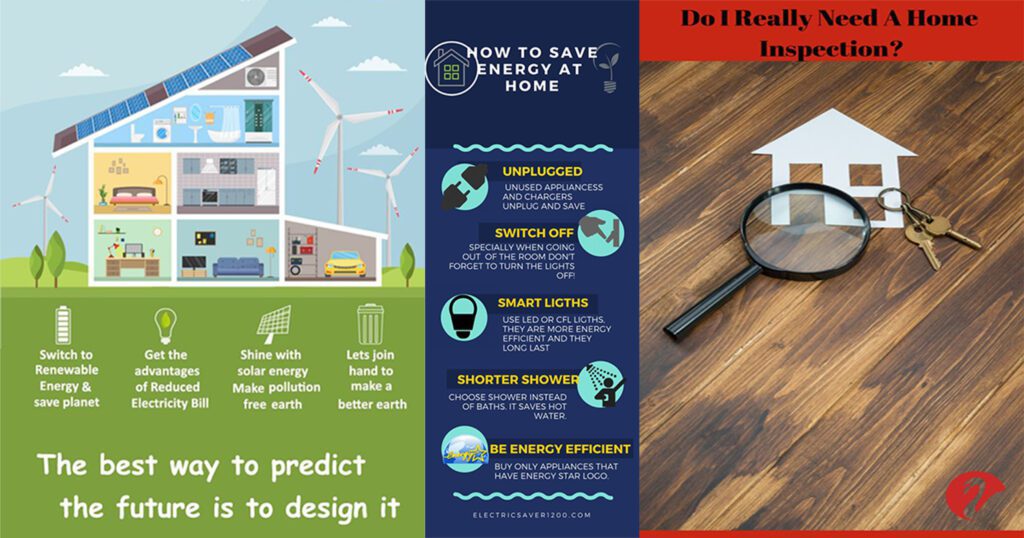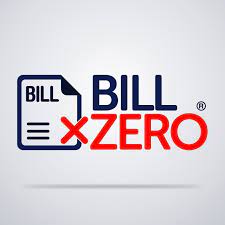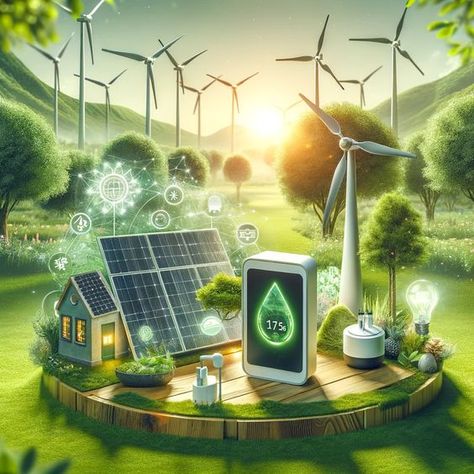Energy-Efficient Home Improvements: Smart Ways to Save on Energy Costs
Is your carbon footprint a worry of yours, and are you sick of paying exorbitant energy bills? Make Your House a Haven of Energy-Efficient Living Now! Nowadays, being responsible for one’s energy consumption is more than just a phrase; it’s an absolute must. Reducing your home’s energy consumption has dual benefits: it helps the planet and your wallet. If you want to know how to make your house more energy efficient, here is a good place to start.

The Importance of Energy-Efficient Practices
Electricity Savings: What Is It?
See what happens when you do less with more! Energy efficiency is based on such a principle. It has nothing to do with being uneasy or giving up contemporary comforts. The focus instead shifts to reducing energy waste in all facets of our lives, including transportation. We are effectively doing away with waste by using less energy to accomplish the same goals. An analogy that could help you understand energy inefficiency is the habit of filling a glass to the rim but only drinking half of it.
Energy efficiency is a broad concept that encompasses many different things, including the light bulbs we use and the vehicles we drive. To accomplish the same function with reduced power consumption, an energy-efficient device may employ ingenious design or cutting-edge technology. A conventional fridge uses a lot of power to keep food cold, but an energy-efficient one uses much less.
Energy efficiency is beneficial not only to the environment but also to your cash. Reduce your energy consumption, and your utility bills will go down. The beneficial effects, however, extend beyond just your bank account. Cutting back on energy use helps slow global warming and makes the air we breathe cleaner and safer for all people by decreasing our demand for fossil fuels and the amount of greenhouse gases we release into the atmosphere. Thus, you and the planet both benefit from adopting energy-efficient activities.
Increased Efficiency and Its Advantages

Reduced Energy Expenses
Improving the energy efficiency of your home can drastically lower your monthly energy expenditures. Doing so can help you save a significant amount of money every month, which will put you in a stronger position to reach your financial objectives. You may put more money towards the things that matter most to you—a dream trip, a child’s education, or a comfortable retirement—by decreasing your energy use. Reducing your energy consumption also helps lessen your impact on the environment.
Think of it as beneficial for both your bank account and the environment! Modifying your habits and making a few little repairs around the house are two simple and inexpensive ways to make your home more energy efficient. Here are a few doable things you may do to reduce your home’s energy consumption.

Impact on the Environment
There is a considerable decrease in the carbon footprint of energy-efficient houses. Because of this, they reduce their energy consumption, which in turn reduces the amount of greenhouse gases discharged into the air. Emissions like this, especially carbon dioxide, add to the problem of global warming because they act as heat traps. Minimizing your home’s energy consumption is a practical action you can take to fight against the harmful effects of climate change.
Some examples of this include changes to ecosystems all around the globe, more frequent and severe weather, and higher sea levels. Reducing your home’s energy consumption has several benefits, including lowering your monthly energy costs and improving the environment for generations to come. A cleaner, greener future for everyone is just around the corner, thanks to this little adjustment.
Simple Ways to Make Your House More Energy Efficient
Insulation
With the right insulation, you can keep your house at a comfortable temperature year-round without breaking the bank on energy bills. Fiberglass, cellulose, and foam board are just a few of the various insulation options available; each has its own set of pros and cons.
Power-Saving Home Appliances
You may drastically cut down on your power usage by switching to more energy-efficient appliances. To find appliances that fulfil the stringent energy efficiency standards imposed by the Environmental Protection Agency, search for the Energy Star designation.
Light-Emitting Diode Lighting
In comparison to incandescent light bulbs, LEDs last far longer and consume up to 80% less energy. Plus, they don’t get too hot, so they’re more comfortable to use and easier on your HVAC system.
Modern Heaters
By tracking your routines, smart thermostats can save energy by adjusting the temperature when you’re not home or sleeping. Additionally, you can operate them remotely through your smartphone, giving you the freedom to modify the temperature in your home from any location.
Resources for Clean Energy
Energy-Saving Solar Panels
One way to harness the power of the sun is via solar panels. The upfront cost may be significant, but the money you save on your energy costs over time will make it more than worth it. On top of that, you won’t be using as much fossil fuels leaving less of an environmental impact.
Funding & Incentives from the Government
Financial Assistance and Bonus Schemes
See if you qualify for any of the energy efficiency home improvement subsidy programs run by the government, such as ECO4 or GBIS. Homeowners can make improvements more affordable by taking advantage of these programs, which can assist offset the upfront cost.
The First Steps
Get a Home Inspection
Here’s when an energy audit for your house becomes useful. Having one look for hidden energy leaks and inefficiencies in your home is like hiring a private investigator. Consider it a hidden weapon to reduce your expenses and elevate your home to the level of a champion when it comes to comfort and efficiency.
A thorough examination of your house’s energy usage is what an energy audit entails. It is like a leaky tap: it keeps draining your pocketbook by revealing precisely where energy is being squandered. The best way to maximize your savings is to identify the energy hogs so you can make the necessary renovations and enhancements first.
Priorities Activities
Cutting back on your home’s energy consumption isn’t an insurmountable mountain to climb. Defeating energy waste requires a methodical, planned strategy; fighting legendary creatures isn’t even close. A good place to start is with simple, inexpensive changes that will have a significant impact on your energy consumption and costs. You can think of them as energy-efficiency power-ups that will immediately boost your savings and make you feel accomplished.
First, we will concentrate on easy, inexpensive upgrades. You may see the impact on your costs right away, which will drive you to tackle bigger projects later on. An energy-savings “choose-your-own” adventure!
Get the Opinion of Pros
You can certainly face some efficiency issues alone, but why not bring in the big guns? Here is where getting advice from experts in the energy industry, such as the creative brains at Bravo Brain Solutions Pvt. Ltd., can make all the difference.
Imagine Bravo Brain Solutions Pvt. Ltd. as an energy magic show for you and your team. They have a wealth of information and are prepared to help you understand energy efficiency so that you may make better, more informed decisions for your home in the future.
Do-It-Yourself vs. Expert Installation
Upkeep and Sustainability in the Long Run
Provide advice on how to keep energy-efficient systems running well and make sure they can withstand the test of time. Your enhancements can last longer and save you more energy if you take the time to maintain them regularly.
Evaluate the Pros and Cons:
How to figure out how much money you’ll save by installing different energy-saving enhancements. By doing so, you may ascertain which improvements will result in the most long-term cost reductions.
You can help the environment and your wallet by making your home more energy efficient. Enjoy a more pleasant house while decreasing your influence on the environment by using these simple suggestions and upgrades. Now is the perfect moment to begin your road toward energy efficiency, as there are numerous alternatives accessible, ranging from minor adjustments to significant enhancements!
Frequently Asked Questions About Energy-Efficient House Upgrades
Why should I think about making energy-efficient upgrades to my house, and what exactly are they?
Renovations that are energy efficient aim to lessen the load on the house’s electrical system and, by extension, the homeowner’s utility expenses. They’re crucial for making a home that’s both cozy and eco-friendly.
How can I pay for upgrades that will make my house more energy-efficient?
There are several ways to finance energy-efficient home modifications. Some of these options include utility company financing programs, tax credits, rebates, and incentives from the government.
What are some simple, immediate ways I can make my home more energy efficient?
The installation of LED light bulbs, the sealing of drafts, and the use of smart thermostats are all simple ways to improve energy efficiency. You may save a lot of money and live a greener lifestyle by making some easy changes.
I would like to know whether there are any financial incentives for home energy upgrades. In order to encourage energy-efficient improvements, several governments and utility providers give rebates and tax credits, among other incentives. The upfront expenses of renovations can be partially covered by these incentives.
How can I determine which home energy efficiency improvements will have the most impact?
Your budget, energy objectives, and household demands will play a role in determining which energy-efficient modifications are the greatest fit for your home. Additional helpful advice can be obtained by consulting an energy expert.
In the long run, what are the advantages of making energy-efficient upgrades to my house?
Putting money into energy-efficient home upgrades can pay off in the long run with reduced energy bills, more comfort, more property value, and less of an impact on the environment. Over time, these upgrades will yield financial and environmental benefits.
